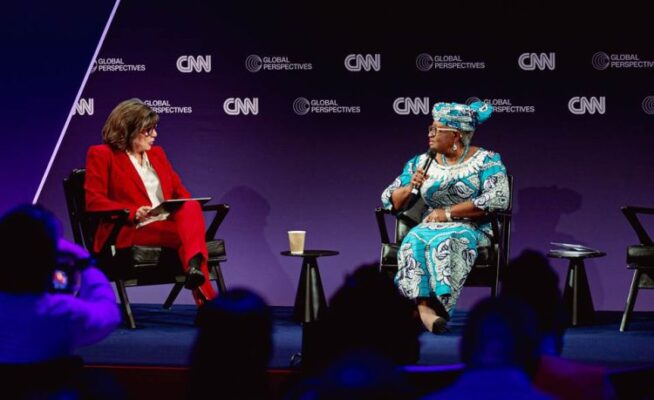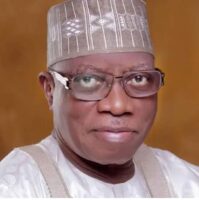Ngozi Okonjo-Iweala, Director-General of the World Trade Organisation (WTO), has described the impact of the Trump administration’s tariffs as “the greatest disruption in trade in 80 years.”
Speaking at CNN’s Global Perspectives conference, Okonjo-Iweala reflected on the widespread global trade consequences following US President Donald Trump’s announcement on April 3 of sweeping tariffs on all imports into the United States.
“You can see the battering by the fact that the most favoured nation (MFN) trade came down from 80 percent to 72 percent,” she said, highlighting the immediate effects on international commerce.
She warned that the global trading system, “was built for interdependence, not overdependence,” noting that many nations had become overly reliant on the US for market demand and on China for critical supplies. “So, this is also a wake-up call to try to diversify your sources of demand and supply,” Okonjo-Iweala said.
Read Also
The former Nigerian minister emphasised that the global trade system, developed over the past 80 years, has broadly contributed to prosperity worldwide, lifting “more than a billion people out of poverty” and benefiting both rich and poor countries.
READ ALSO: FG, Trump, US Officials disagree on ‘Christian Genocide’ claims in Nigeria
At the same time, she acknowledged some shortcomings: “Not everyone benefitted the way they should. We recognise that and I think some problems have crept into the global trading system that should have been dealt with.”
She added, “That is why I say I agree with some of the criticisms that the Americans make. But, by the way, they are not the only ones criticising the system.”
Okonjo-Iweala further noted that developing nations feel the system “has not worked for them, that they have not been fully integrated, and that they have not benefited as much.” She highlighted their aspirations: “Emerging markets want to industrialise. They also feel the system needs to work better. So, there’s lots of work to do and it is looking at those criticisms.”
The WTO chief said such critiques are “coming to the fore now because of the crisis we are in,” assuring that member countries “are now focused on trying to resolve it.”





